Can Hydrogen Fuel Work for Long Distances?

Have Hydrogen Vehicle Range Anxiety? Here’s Why You Shouldn’t.
Chuck Hayes, Global Technical Lead, Swagelok
As alternative fuels and transportation technologies continue to increase in popularity and availability, it’s natural to wonder if they can deliver comparable ranges to typical diesel- or gasoline-powered options.
Hydrogen has shown great promise for applications that are traditionally dependent on fossil fuels. It’s an ideal, promising alternative in a world increasingly seeking to decarbonize.
But misunderstandings about hydrogen can limit its adoption, including the myth that hydrogen is an impractical fuel source for longer-distance travel. In this second installment in our series on hydrogen myths, we will examine why there is no need to feel anxious about the distance you can comfortably travel in hydrogen fuel cell vehicles.
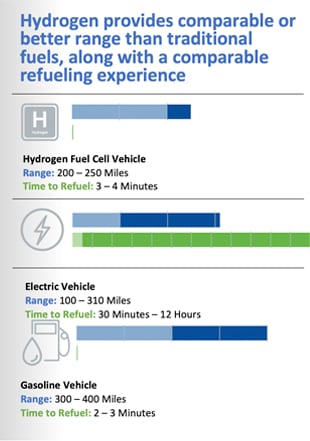 Going the Distance
Going the Distance
The gasoline internal combustion engine has long inspired confidence in drivers. A tank full of gasoline can power most vehicles for a range of 300 to 400 miles between stops. Because people expect this from their vehicles, experts often cite “range anxiety” as a hesitation experienced by people considering alternative-fuel vehicles.
In reality, hydrogen is a high-energy-density fuel that vehicles can use more efficiently than other currently available alternative fuel sources. Hydrogen’s small molecular size allows it to be compressed and stored in high-pressure tanks, allowing it to be transported and used more efficiently than other options.
This means that hydrogen fuel cell vehicles have significant potential for heavy-duty transportation. While battery technology is not currently mature enough to support heavy-duty transport, hydrogen is an ideal alternative to diesel in the immediate term.
An Ideal Refueling Experience
End-user experience is important for adoption of any technology, and hydrogen delivers on that need too.
Hydrogen vehicles can be filled within minutes, and the experience is comparable to a traditional gasoline or diesel pump. It’s a stark contrast to the hours it generally takes to charge an electric vehicle, which can leave drivers immobile and inconvenienced. See the graphic included here for a comparison. Additionally, hydrogen refueling infrastructure can be more easily integrated into existing refueling stations (i.e., gas or petrol stations) than optimally powerful electric vehicle charging infrastructure.
Hydrogen refueling infrastructure must be constructed with high-quality materials to fulfill this seamless experience for the end user.
Hydrogen refueling infrastructure must be constructed with high-quality materials with specific properties to fulfill this seamless experience for the end user. The design and material composition of valves, tube fittings, and other critical fluid system components should be selected with care and consideration to maximize the reliability of hydrogen refueling stations. Avoiding costly/unsafe leaks and maintaining performance in newly built or retrofitted hydrogen stations are critically important to the long-term viability of hydrogen fuel for transportation applications.
The Bottom Line
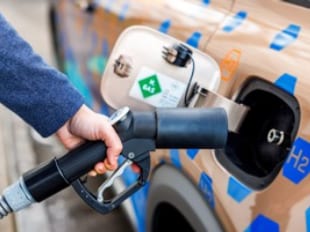
Interested in learning more about the hydrogen economy? Looking for assistance in selecting or specifying critical components for a hydrogen application? At Swagelok, we’re hard at work to deliver reliable solutions for hydrogen and other alternative fuels. We’re ready to collaborate, learn from, and share our knowledge with clean energy professionals. Explore Swagelok Reference Point for more critical considerations about the clean energy industry and reach out to your local authorized Swagelok sales and service center for specialized support.
Related Articles
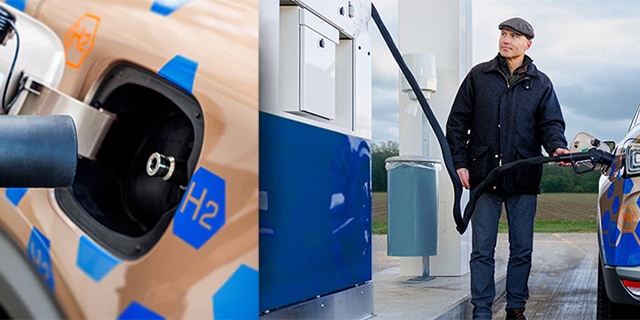
Safe, Reliable Hydrogen Handling: Find Out What It Takes
Hydrogen mobility requires the highest-quality components to meet the technology’s full potential. Here’s what you need to know to develop safe, reliable, and long-term hydrogen transportation solutions.
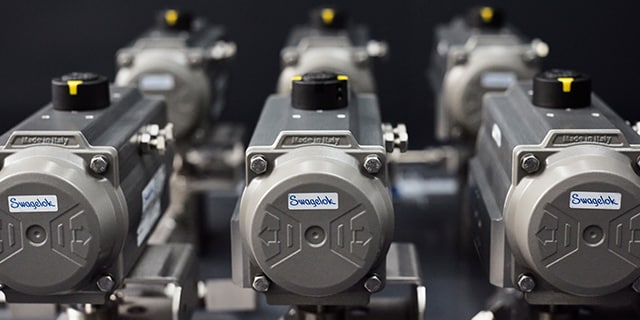
Building Mission-Critical Hydrogen Compressors
Learn why one pioneering hydrogen compressors manufacturer relies on Swagelok for high-quality fluid system solutions to propel the burgeoning hydrogen mobility marketplace.
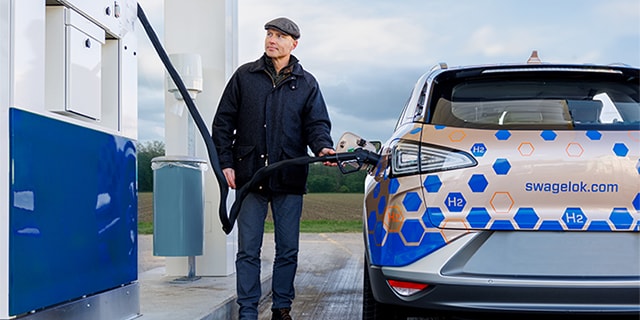
What to Look for in Hydrogen Valves
Valves are critical parts of hydrogen fluid systems. Learn what to look for in an ideal hydrogen valve and how it can contribute to safer, more reliable hydrogen transportation.



